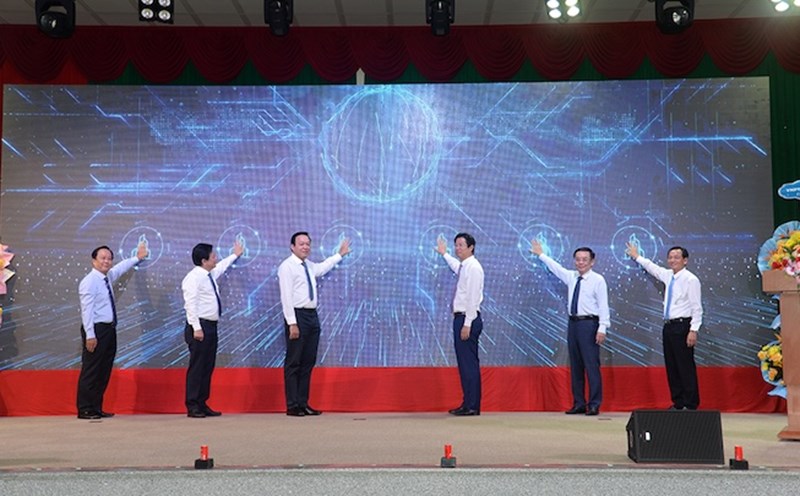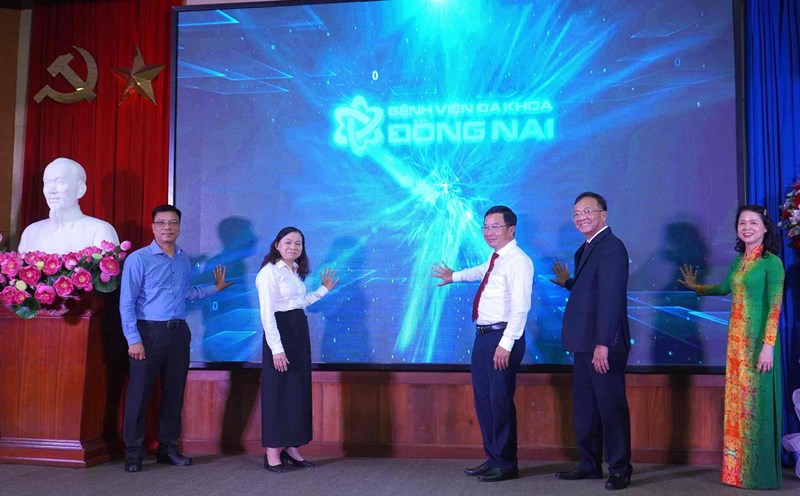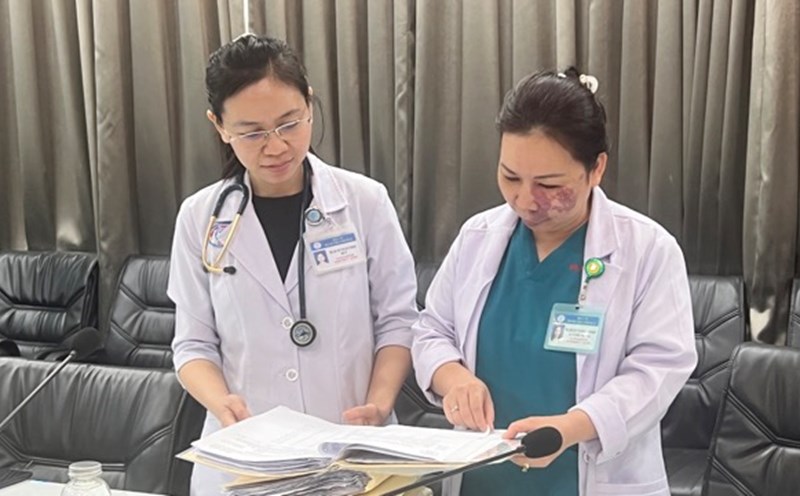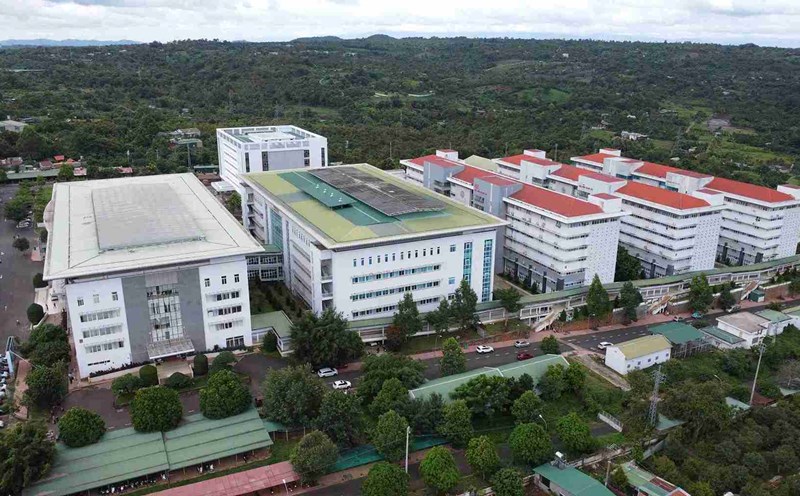Digitization of healthcare - an inevitable trend Digitization of medical records not only helps reduce the amount of documents and administrative procedures but also creates a more transparent, accurate and safer medical examination and treatment environment.
Through EMR, the entire treatment history, test results, imaging diagnosis and drug prescriptions of patients are centralized and easily traceable, while ensuring confidentiality according to the law.
Associate Professor, Dr. Tran Quy Tuong - former Director of the Department of Information Technology (Ministry of Health) - assessed: "Digital transformation in healthcare is an irreversible trend.Electronic medical records help improve the quality of care, save costs and shorten treatment time, and are the foundation for forming a smart health network connecting from the grassroots to the central level".

The implementation of electronic medical records at medical examination and treatment facilities is based on a solid legal foundation, including: Law on Medical Examination and Treatment 2023, Circular 46/2018/TT-BYT of the Ministry of Health on electronic medical records, along with instructions in Resolution 20-NQ/TW on strengthening the work of protecting, caring for and improving people's health.These documents not only create a legal corridor but also affirm that digital transformation of healthcare is an urgent, long-term task, associated with the goal of sustainable development and social justice.
Practical significance for patients and the medical team In reality, patients often have to be re-examined many times at many different facilities.
Carrying paper documents can easily get lost, causing delays in diagnosis and treatment.With EMR, doctors can access complete medical data with just a few operations, thereby making decisions more quickly and accurately.
Dr. Nguyen Huu Tuong - Professional Director of JT Angel Hospital - shared: "Electronic medical records are not only convenient for doctors but also help patients feel more secure because information is kept securely, can be monitored continuously, and even support remote consultations with domestic and foreign experts".

For the medical team, EMR also reduces administrative pressure, allowing them to spend more time on professional work, improving the effectiveness of medical examination and treatment.According to Ms. Nha Le - CEO of JT Angel Hospital - the implementation of EMR is the first step in the strategy of building a smart hospital, focusing on patients.This system not only serves disease management but also integrates with management software, helping to optimize operations, make operations transparent and improve the competitiveness of private hospitals in the context of integration.
Ms. Nha Le emphasized: We not only apply technology to facilitate internal operations, but more importantly, we build trust in patients.JT Angel wishes to become a model in the field of cosmetic healthcare, contributing to the national digital transformation process.
The fact that a private hospital in the cosmetic sector has pioneered the application of EMR shows that digital transformation is no longer a game of the public health sector alone, but has spread to the private sector, contributing to the formation of a comprehensive healthcare ecosystem.
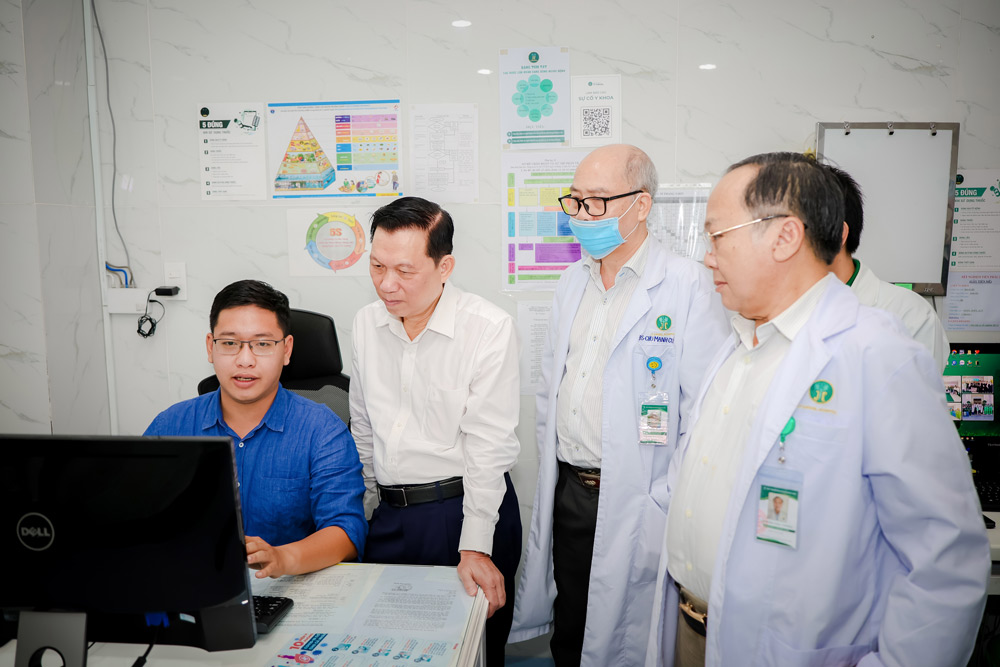
In the context of workers and people increasingly interested in the quality of healthcare services, especially transparency and convenience, the move of JT Angel Hospital is meaningful in paving the way, affirming that digital transformation is the key to improving the quality of health care for the whole society.
The implementation of electronic medical records at JT Angel Hospital is built on a clear legal foundation, ensuring legality and safety: • The 2023 Law on Medical Examination and Treatment (effective from 1/1/2024) stipulates that electronic medical records have legal value equivalent to paper records, and are allowed to be completely replaced. • Circular 46/2018/TT-BYT guides the establishment, use, preservation and sharing of electronic medical records, requiring the assurance of technical infrastructure, information integrity and security, and the ability to connect national data. • Resolution 20-NQ/TW of the Central Executive Committee on strengthening the work of protecting, caring for and improving people's health in the new situation emphasizes the goal of promoting the application of information technology and developing a smart health system.

